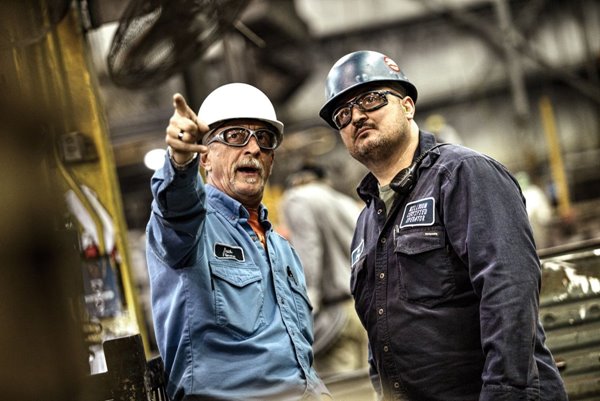Audi changes what, how it builds to drive out CO2
Larry P. Vellequette | Automotive News
Audi changes what, how it builds to drive out CO2
As it switches from ICE to BEV by 2033, Audi is also changing the way its assembly plants produce vehicles, concentrating on making those plants — and ultimately the rest of its operations — carbon neutral.
BRUSSELS — Some of the first seeds of Audi's global ambitions to transition from fossil fuels toward carbon-neutral products and production were planted on the roof of the luxury brand's assembly plant here more than a decade ago.
Now, not only have those seeds taken root, but they've started to propagate from Brussels to locations across the globe — all in an effort to not only eliminate carbon emissions from Audi's lineup of vehicles, but also from the plants where they are built.
Beginning in 2025, production at all Audi plants globally will be net carbon neutral under an environmental initiative launched in 2020 called "Mission: Zero." The ambition to cut carbon emissions goes along with the brand's pledge to launch EVs exclusively beginning in 2026, and to phase out sales of internal combustion vehicles by 2033.
Audi Brussels — which makes the Q8 E-tron crossover and later this year will also begin producing the smaller Q4 E-tron, including those sold in the U.S. — has been net carbon neutral since 2018. The designation means the factory has taken steps to eliminate carbon from its production processes, and has offset what carbon it has not yet eliminated through other means, including planting trees.
But offsets only go so far, so the automaker is continuing to fund measures to further cut carbon from its factory here, plant executives say.
This summer, Audi Brussels will bring online a new "circular" water system that promises to save 100,000 cubic meters of freshwater demand from the plant annually on the Belgian capital city's water system.

LARRY P. VELLEQUETTE
The Audi Brussels plant includes a rooftop solar array, top left, a closed-loop graywater processing plant, top right and above, and rail lines that deliver battery components by electric train from Hungary.
Closed-loop water system
The multiyear graywater project — the plant will use the same water over and over with light purification between uses — will mark the latest in a string of alterations to drive carbon from Audi's production processes around the globe. In Belgium alone, it joins a decade-old rooftop solar installation, a switch from trucks to trains to bring in battery components from Hungary, and other measures large and small aimed at giving the brand's smallest assembly plant the smallest possible pollution footprint.
The Brussels plant's closed-loop graywater project is similar to the one Audi uses at its sole North American assembly plant, in San Jose Chiapa, Mexico, which produces the Audi Q5 on a similar closed loop system that has saved an estimated 150,000 cubic meters of water per year since 2018, the brand says.
"Particularly in a country like Mexico, where there's a risk of drought, using water in a way that conserves it as a resource is very important," Tarek Mashhour, executive president of Audi Mexico, said in a statement.

GOOGLE EARTH
On the Brussels plant's massive roof is a solar energy array that can generate up to 9.7 megawatts of electricity, depending on the amount of sunshine. Installed in 2012, the array, on average, generates about 13 percent of the energy used in the production process, "but on a sunny summer day, we can get up to 50 percent," Peter D'hoore, head of external communications at Audi Brussels, told Automotive News during a tour in December.
Rooftop view
The array is scheduled for an upgrade, which is expected to increase its efficiency and provide the plant with even more energy, D'hoore said. Standing on the building's roof, it's possible to see not only the solar array, but also the nearby water treatment plant, with trains that now deliver the factory's batteries parked in between.
When it first began building the original Audi e-tron, in 2018, the vehicle's battery cells were trucked into the plant. Now, the plant receives its cells from a plant almost 900 miles away in Göd, Hungary, near Budapest, shipping them by electric train.
"We used to ship them by truck, but switching to the train saves us about 2,600 tons of CO2 per year," Jan Marls, head of production at Audi Brussels, told Automotive News in December.

